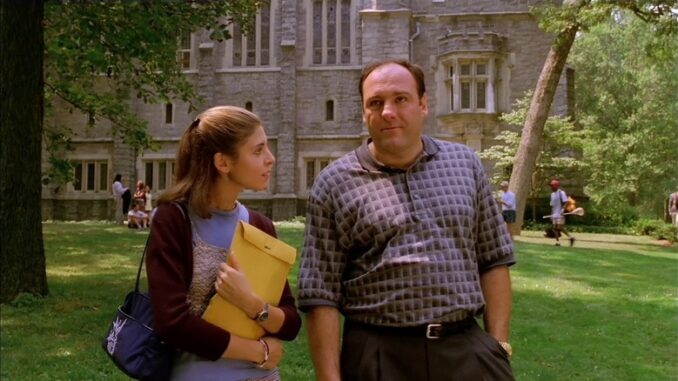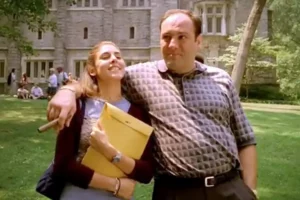
I never met James Gandolfini, and I don’t usually write about celebrities when they pass. A respectful tweet or two is usually enough. But Gandolfini’s portrayal of Tony Soprano is so intertwined with memories of my daughter’s first year that I can’t think of her as a baby without thinking of him.
She was my first child, and like most first-time moms, I was clueless despite my best intentions. Let’s just say she was a “consistent” baby. I breastfed her constantly because public health nurses scared me out of giving her a soother. She wasn’t always nursing for food; sometimes, she just wanted to sleep. While some may celebrate this as a testament to a strong mother-child bond, I’ll tell you, putting your baby to the breast every time she cries isn’t always a good idea. It sets up a cycle where the baby can’t sleep without you, turning you into a sleep-deprived mess who eventually needs to break this cycle for the sake of everyone’s sanity.
But what does James Gandolfini have to do with all this? Unlike my husband, who slept through those endless feeding sessions—he wasn’t the one nursing, after all—James was my constant companion. The upside of being trapped with a baby attached to me for hours was that I could binge-watch *The Sopranos*. And James Gandolfini’s portrayal of the complex and brutal Tony Soprano became a welcome distraction. While I breastfed, sacrificing sleep and sanity, I indulged in this gritty, adult drama—my one remaining pleasure in a world where everything ingestible and fun was off the table.
And Tony Soprano’s horrid mother? She made me feel like a fantastic mom by comparison. I might have wanted to throw my wonderfully challenging baby out the window a few times, but I’d never actually plan a hit on her, especially once she was eating solids and potty-trained.
Watching *The Sopranos* while nursing my baby was a small act of rebellion. Nurturing my newborn—one of the softest, most feminine acts—alongside one of the most violent and profane cultural productions of its time felt thrilling, almost subversive.
Plus, Tony’s lines were surprisingly apt for motherhood. “You don’t shit where you eat. And you really don’t shit where I eat,” became my mantra whenever my daughter relieved herself while I was trying to eat with one hand, holding her with the other. When Tony laments, “The things I take pleasure in, I can’t do,” I couldn’t help but think, “Word.” And when explaining the overwhelming responsibility of early motherhood to a friend, Tony’s line came in handy: “All due respect, you got no fucking idea what it’s like to be number one. Every decision you make affects every facet of every other fucking thing. It’s too much to deal with almost. And in the end you’re completely alone with it all.”
But like any phase, it doesn’t last forever. Things change, and new stages begin. I’m one of the few who loved the ending of *The Sopranos*. I found it true to life—sometimes things just end abruptly, without closure or resolution. Whether Tony lived or died didn’t matter; we had a glimpse into his life, and that was enough. By the time the series ended, I’d become an old pro at the baby thing, ready for the next phase. Bada-bing, bada-boom.
And just like that, James Gandolfini’s life also ended abruptly, without closure. For me, and probably most of the world, he will always be remembered as Tony Soprano. And while I’ve loved him in many other roles, I have a special place in my heart for Tony, who was my nighttime beacon, helping me through those long nights of early motherhood. Rest in peace, Mr. Gandolfini, and thank you.
